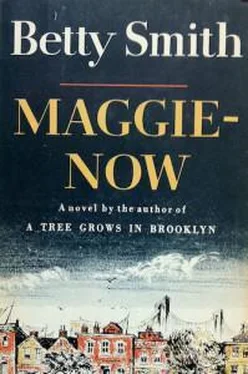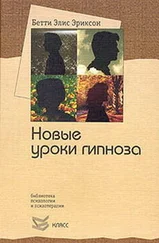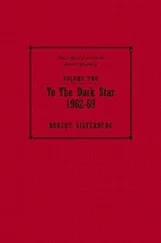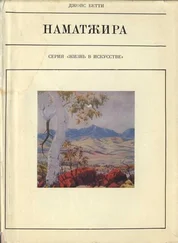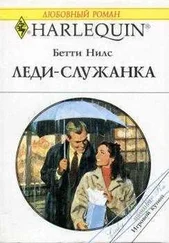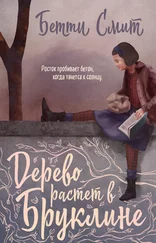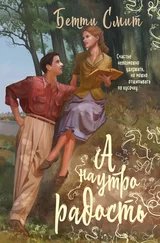Бетти Смит - Maggie-Now
Здесь есть возможность читать онлайн «Бетти Смит - Maggie-Now» весь текст электронной книги совершенно бесплатно (целиком полную версию без сокращений). В некоторых случаях можно слушать аудио, скачать через торрент в формате fb2 и присутствует краткое содержание. Жанр: Проза, на английском языке. Описание произведения, (предисловие) а так же отзывы посетителей доступны на портале библиотеки ЛибКат.
- Название:Maggie-Now
- Автор:
- Жанр:
- Год:неизвестен
- ISBN:нет данных
- Рейтинг книги:3 / 5. Голосов: 1
-
Избранное:Добавить в избранное
- Отзывы:
-
Ваша оценка:
- 60
- 1
- 2
- 3
- 4
- 5
Maggie-Now: краткое содержание, описание и аннотация
Предлагаем к чтению аннотацию, описание, краткое содержание или предисловие (зависит от того, что написал сам автор книги «Maggie-Now»). Если вы не нашли необходимую информацию о книге — напишите в комментариях, мы постараемся отыскать её.
Maggie-Now — читать онлайн бесплатно полную книгу (весь текст) целиком
Ниже представлен текст книги, разбитый по страницам. Система сохранения места последней прочитанной страницы, позволяет с удобством читать онлайн бесплатно книгу «Maggie-Now», без необходимости каждый раз заново искать на чём Вы остановились. Поставьте закладку, и сможете в любой момент перейти на страницу, на которой закончили чтение.
Интервал:
Закладка:
She no longer enjoyed conversations with the storekeepers. It wasn't enough for one to sell a bag of salt. He had to explain how necessary salt was. (Or.`e had said: "If you have nothing but salt, l 712]
bread and water, still you can live.") In a dim, inarticulate way, she had realized that the selling of stuff was the all of most storekeepers' lives and they had to round out their lives by giving background and interest to everything they sold. Before Claude left, she had enjoyed their home-made philosophy, but now it irritated her.
7'alk, talk, talk, she thought. ~11 about nothing. What do I care? I don't want to know how it is with them and l don't want anybody to kno w how it is with me.
But they knew; more than she thought they did. Van Clees knew. He had seen her pass his store arm in arm with Claude and had noticed the way they looked at each other when they spoke. When she came into the store, he sometimes adroitly inserted Claude's name into the conversation to see her expression.
"And your friend Mr. Bassett, how does he do?"
Her face fell into sad lines as she said: "I never hear from him. He's in the war, I guess."
"Ah, so?" he said. He waited, hoping she would confide in him. But she didn't.
AInd so he left her, he thought. And she's in love with him and he's a no-good with a fancy name what smokes cigarettes. She is a good girl and she should find some good man to take care of her. Bzzt she would not know how to let anybody take care of her because she is so that she must take care of others and she wants that man because she wants to take care of him like he was a baby.
"Gott damn!" he said aloud. Interested in analysing MaggieNo\v, he had ruined a cigar in the making.
Her father knew how it was with her; that is, he knew according to his way. So she lost the man what she thinks she loves. I lost the girl what I knew I loved. I got over it. I
didn't die. She'll get over it and she won't die. She'll meet another man someday and f orget that first one.
Did you forget? he asked himself.
What has that got to do with it? he answered himself. I'm stzlbborn and she ain't.
Father Flynn knew how it was with Maggie-Now. In the dark confessional, she had told her sins to him; the sin of carnal pleasure she'd known when a man pressed her arm against his side; the sin of almost hating her father;
defying him and Iying to him be
~ 241 1
cause he was against her happiness; the sin of thinking for a second of giving up her faith. She had confessed and had done penance.
Theoretically, a sinner kneeling in the dark confessional Noms anonymous, only a soul seeking expiation of sin.
But Father Flynn knew the timbre of her voice; the clean smell of soap and water and starched clothes that he associated with her. He knew she suffered. He knew she needed comfort.
He felt, however, that he could not approach her and say in effect: "Considering the confessions you've made to me in recent weeks. ." No. But he waited for her to come to him for guidance.
Weeks passed. Finally Father Flynn requested Maggie-Now to come to the parish house. Father Flynn was in his garden when Maggie-Now called, and Mrs.
Harrigan, his aged and bitter houseI;eeper, took her through the house into the yard.
Maggie-Now admired the lilac bush. The only other groping thing in the "garden" was a piece of ivy climbing the board fence.
"That's from a roved slip your mother gave me many years ago," he told Maggie-Now. "I had hoped it would cover the whole fence in time but it grows slowly."
"You'd get more ivy and quicker if you made slips."
She explained. He went into the house for a paring knife and they cut off a dozen shoots and l\Iaggie-Now said she'd take them home and keel, them hi water and when they formed roots she'd plant them back in his yard.
He seemed pleased. Mrs. Harrigan c ame out with two glasses of iced tea on a tray.
"Because it's a warm day," explained the priest.
They sat on a castoff park bench half under the lilac inrush. breather Flynn had salvaged it from the junk pile, repaired it and given it a fresh coat of green paint each spring. I\laggie-Now said it was a very nice bench. Father Flvnn agreed but added that it was rather uncomfortable.
They sipped the tea.
"Tell me, Margaret," he said, chow are things with you?"
"Fhle," she said.
'Wllat about your future?"
She looked startled. "I'd like to get a job but I have to wait until fall, when Denny goes back to school."
"Life goes on, Margaret. Perhaps you think there is little of interest in life for you now. That is wrong. You are needed by
~ 244 1
more than one person in the world, you know."
He waited, giving her an opportunity to speak of her unhappiness. She said, "That's all right, Father," meaning: Do not trouble yourself about me.
"I asked you here, Margaret, because I need your help."
"Yes, Father."
"I've fixed up the basement of the church as a sort of recreation room. Someone was kind enough to donate a pianola, and Mr. Rummel, the undertaker, donated a dozen folding chairs. I thought we could have Thursday-night socials. So many of our boys are going into the services, and a little send-off party. . Young people getting together to sing talk. Some modest refreshment.
I want you tc, take charge of this for me," he said.
"I will be pleased to," she answered.
When they had finished the tea, he took the two wedges of squeezed lemon and buried them at the base of the lilac bush. He knelt in the dirt and gestured with his trowel.
"That's to make the soil acid. I heard lilacs like an acid soil. But I bury my breakfast eggshells here, too. Just in case they like a calcium soil." He got up and brushed the soil from his knees. "Ah, Margaret," he said, "1 had hoped you'd talk to me."
She knew he meant talk about Claude and her unhappiness. '~1 know," she said. "But there s nothing to talk about. . now."
Maggie now canvassed the neighborhood and found three Uilmarried Catholic girls who said they'd be tickled to death to do their bit for their country by entertaining young men about to he drafted. By agreement, the girls were at the place first in order to welcome the young men.
The church basement was warm, tidy and softly lighted.
Church supplies were stored on shelves: tins of French incense, grosses of beeswax votive candles; pads of marriage certificates and birth certificates. There was a brand-new iron for baking communion wafers.
(Nuns frc,m a nearby convent baked the communion wafers and delivered them each Saturday. But at the time of the great blizzard the nuns hadn't been able to get through the drifts and Father Flynn had had to use stale wafers for the few commun;cants who fought their way t() Mass. He had, after that, obtained 1 ~) 1
the iron and the recipe so that in case of another blizzard he could bake the wafers himself.)
There — were many garden implements: spade, hoe, shovel and rake too many for one lilac bush, thought Maggie-Now critically-and, looking lost and out of place, a pair of skis standing in the corner.
The four young men came together to give each other nerve, one of them explained. The girls tittered. They introduced themselves. One of the young men was the son of Pheid, the plumber. He was introduced as Son Pheid.
"Call me And Son for short," he said.
This called for some merriment which the young people prolonged as long as possible because they didn't know v`7hat to do next. Father Flynn heard the laughter in his house next to the church, and was pleased. It keeps them off the street, thought the kindly priest. (Although they were all too old to hang out on the streets now.)
Читать дальшеИнтервал:
Закладка:
Похожие книги на «Maggie-Now»
Представляем Вашему вниманию похожие книги на «Maggie-Now» списком для выбора. Мы отобрали схожую по названию и смыслу литературу в надежде предоставить читателям больше вариантов отыскать новые, интересные, ещё непрочитанные произведения.
Обсуждение, отзывы о книге «Maggie-Now» и просто собственные мнения читателей. Оставьте ваши комментарии, напишите, что Вы думаете о произведении, его смысле или главных героях. Укажите что конкретно понравилось, а что нет, и почему Вы так считаете.
